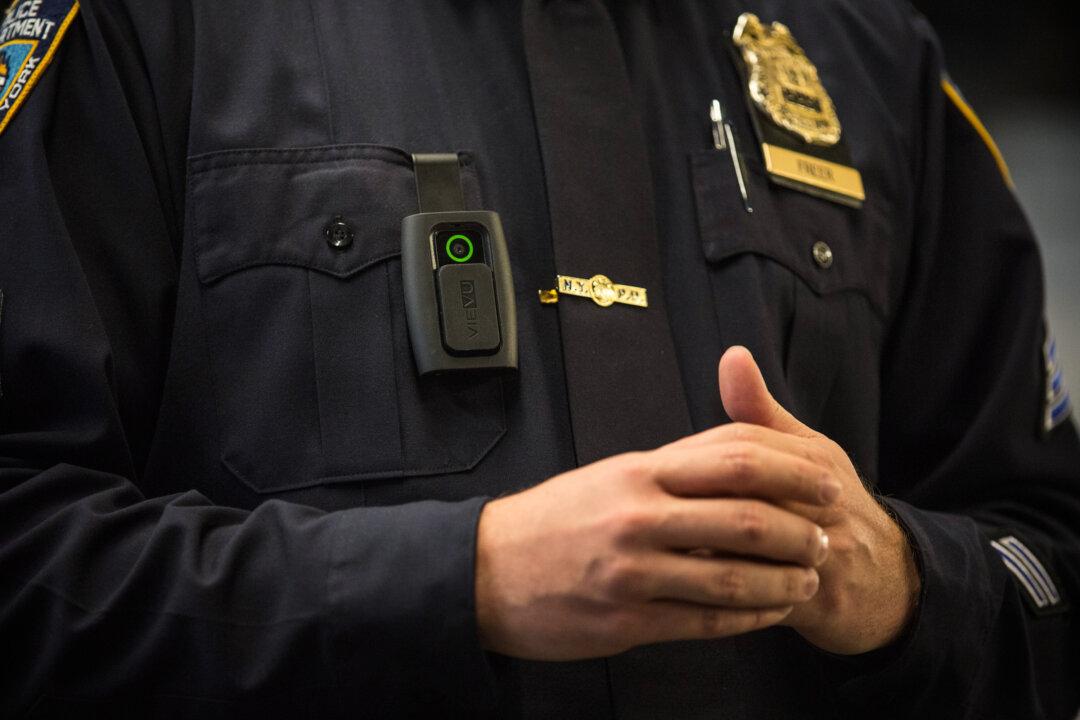The National Police Association (NPA) on Thursday said that it welcomes the “transparency” of the Department of Justice’s move to require its federal officers to wear and activate body cameras while carrying out pre-planned search and arrest warrants.
Sgt. Betsy Brantner Smith, a spokesperson for the NPA and current law enforcement trainer, told The Epoch Times that the non-profit organization believes the new requirement will both improve the safety of federal agents through the review of footage, and lead to a greater confidence in federal law enforcement in general.





